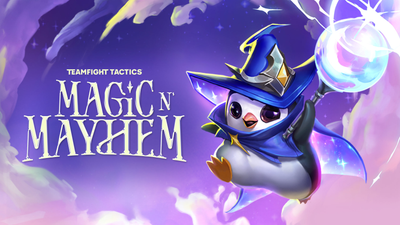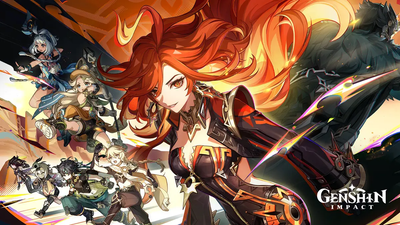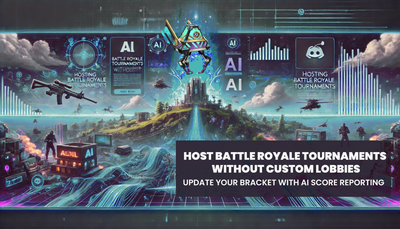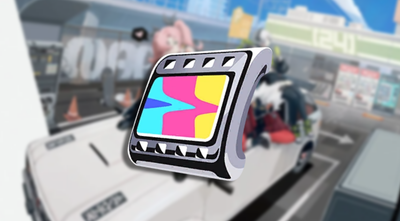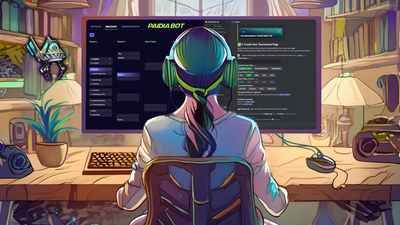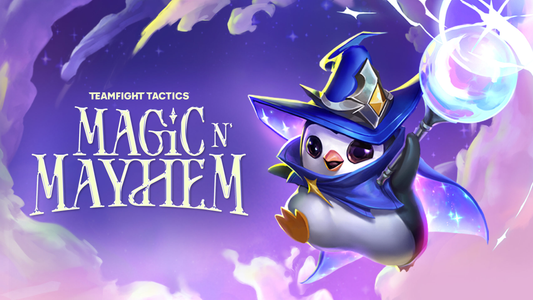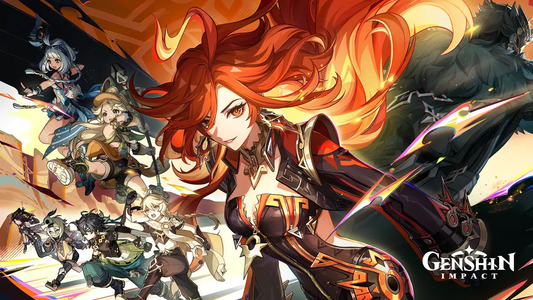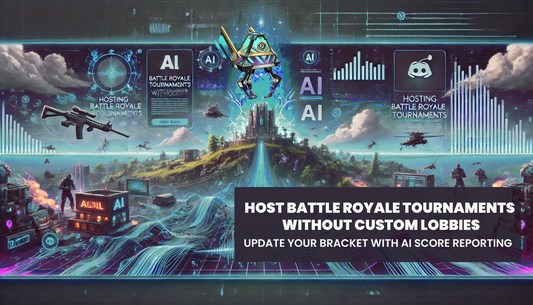Originally posted on February 1, 2022
Playing video games competitively can be a stressful experience, especially when you’re invested in the result of a match. This can cause problems for a lot of players, including toxicity, burnout and distress. However, this doesn’t have to be the case - here are our tips on how to build and maintain a healthy relationship with competitive gaming.

Know what you want
Thinking critically about our gaming experiences may feel unnatural to a lot of people, but understanding what you want from a game can help you to customize your experience to suit you best. Take some time to think about whether you’re wanting to just play for fun or play at a high or professional level. If you feel you’re somewhere in between, you should consider all of the advice below.
Playing for fun
Playing a game just for fun is perfectly valid - it’s what video games are designed for, after all! You should try to think about how you can keep the game fun for yourself as well as other people.
In games like Overwatch and League of Legends, disabling the in-game voice and text chats can be incredibly helpful for maintaining a good playing environment. Not everyone is nice in competitive games, but minimizing your chance of getting affected by toxicity is a great step towards a happier experience. Although we don’t recommend doing this in ranked matches for team games if you want to climb, as it may disrupt your team’s communication, your health is more important than the win.
Additionally, when interacting with others about the game, try to make it clear you’re just playing for fun. Some hardcore players have an urge to help every player they meet improve at the game and can be quite harsh and intrusive about it, and the best way to prevent this is explicitly saying that you only play for fun. Not wanting to play at a high level is perfectly ok, and nobody should try to force you into it.
Going pro
Wanting to play games at a high level can be very intense and demoralizing at times, and this is where building a healthy relationship with the game is most important.
A great way to keep yourself engaged and feeling fulfilled with a game is to set yourself goals, both long term and short term. For example, a long term goal in League of Legends may be to hit Challenger rank. However, to get there, you may have to hit Diamond, Master and Grandmaster first: each of these can become short term goals. Goals don’t need to be as basic or quantitative as this, though. Short term goals can be completely arbitrary things like ‘make friends within the community’, ‘become more confident in my play’ and in some games, ‘build a team or deck that I’m happy with’. Setting and meeting goals can help you to better understand your relationship with the game and what works for you, too.

At times, you may feel like you hit a roadblock and aren’t sure how to progress. We recommend switching things up - changing the character or role you play may give you a different perspective on the game, and allow you to develop your skills and game knowledge. This can allow you to come back after a while with a fresh mentality. Another solution to feeling stuck is to take a break.
When and how to take breaks
Learning your limits and when to take a break is incredibly important - burning out can harm both your mental health and your performance. We recommend taking a break if:
- You have been feeling low about your performance
- You aren’t enjoying the game at the moment
- You are too immersed in the game and struggle to think about or do other things
- Playing or thinking about the game makes you feel stressed
And most importantly, you should take a break if you feel like you need one - being kind to yourself is important when competing, as you can’t expect to perform at your best if you’re not looking after yourself.
A break can take many forms - some more strict than others. Some different ways to take breaks include:
- Playing the game less often
- Only playing the game casually with friends and not engaging with competitive modes
- Not playing the game at all for a period of time
- Not playing the game or engaging with any content about it
- Taking time away from being online in general
If you’re not sure what kind of break is right for you, try one of these and if you don’t feel like it’s helping, try something stricter.
How do I stop being toxic?
In an ideal world, everyone is nice to each other, but sadly this is not the case in gaming. For some people, being hostile or rude to others is a natural response to losing. If you find you’re being toxic to other players, here are some ways to improve.
Play with friends
Getting your friends to hold you accountable during a gaming session is a surefire way to make yourself stop and think about what you’re saying online. You can do this by simply asking a friend or group “Hey, will you let me know if I’m being toxic?”. Although what can be considered toxic is subjective, this should make you acutely aware of your behavior and let you know when you’re doing or saying something hostile.
Turn off chat
Another way to prevent toxicity is to turn off chat altogether - if you can’t interact with other players, you can’t be hostile or rude to them. The option to turn off voice and text chat is available in most popular competitive games, and if toxicity is something you struggle with, we recommend you give it a try.
Players are people too
It can help to remember that people you play with or against in video games are human just like you and your loved ones. Think about how you would feel if someone were hostile and rude online to someone you care about - you don’t know who is on the other end or what kind of person they are, so you should treat them with kindness. 
Numbers don’t define you
It can be very easy to get caught up in numbers when playing competitive games. Elo this, MMR that - you should remember that statistics don’t define you as a player. They represent how many games you’re winning and losing but aren’t a definite representative of skill, as that’s impossible to quantify.
Everyone who plays a video game will be better at some things than someone else, and worse at other things. Yet, a game could put them at the exact same point ranking because of their match results. Reminding yourself that the numbers don’t define you is important, as connecting too much of your self-worth to your ranking can be very distressing.
Building a healthy relationship with a competitive game can be a little difficult at times, but with the small steps we’ve outlined, we hope you can make your competitive gaming experience a positive one.


